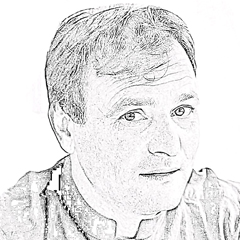Silence has its own language but some silences, particularly in the political sphere, assumes its own connotations and its prolongation actually turns torturous for the opponents. Currently, silent Nawaz Sharif is no less than a dilemma and an enigma that has turned into anxiety for certain quarters.
Seemingly in troubled waters, the uneasiness in the opposite camp indicates that Nawaz succeeded to get under the nerves of his detractors and mastered the art to create a political atmosphere of his own choice and pushed them into uncertainty. Perhaps, Nawaz also learnt that being a leader does not mean compulsorily expressing everything, every time. Maturity of leadership necessitates purposefully speaking at the time of personal choice, not when it is calculatingly determined by others.
Now his words have assumed the proverbial status of an oracle, impatiently awaited by followers as well as opponents. But most importantly, when every single event on a daily basis proves you correct, who needs to speak?
In this regard, Nawaz seems more blessed because he did not have to wait long for history to speak for him, to prove him correct posthumously. He is fortunate that his detractors proved him politically correct every time after his removal. Specifically two events: Agra and Kartarpur. Nawaz must be viewing the Kartarpur peace shenanigans with glee, and a sense of exoneration for him after his removal. It was also proved that on the foreign policy front, particularly related to India, whatever concessions Nawaz was getting, the security establishment failed to centre stage them on the negotiating table when they got into the driving seat. Ironically this time, despite purported overtures since the installing of the new regime, so far they have not succeeded in luring India to the negotiation table.
A mind boggling question is, what is the real snag? Did Delhi have a predilection for Nawaz to ease all guards of statecraft? Did the personal aura of Nawaz influence the government of India to overlook state interests?
If answer to all these questions is no, then why did the radical Indian leadership of BJP agree twice to play on the rough turf of Nawaz’s choice rather than the apparently smooth field provided by the powers to be? Perhaps, the fundamental difference is that Nawaz, as well as his counterpart on the other side of the fence, is acutely aware that unless history is consciously forgotten and the state paradigm changed, the move towards peace to reap economic benefits is not possible. But unfortunately, the security establishment wants to have its cake and eat it too.
In fact holding the gun while talking about peace is an oxymoron. Perhaps, the Indian leadership is mindful of the fact that without moving from the geo-strategic to geo-economic paradigm, the Pakistani security establishment while in the driving seat, only uses normalisation overtures to seek legitimisation to ease out of diplomatic isolation to secure international goodwill.
Perhaps, the fundamental difference is that Nawaz, as well as his counterpart on the other side of the fence, is acutely aware that unless history is consciously forgotten and the state paradigm changed, the move towards peace to reap economic benefits is not possible. But unfortunately, the security establishment wants to have its cake and eat it too
The late Atal Bihari Vajpayee, the then prime minister of India, reached Lahore by bus and agreed to ink the Lahore Declaration on February 21, 1999, as the outcome of the historic India- Pakistan summit which was subsequently rectified by the parliaments of both the countries the same year. However, ironically, despite much ado and Musharraf, the then military dictator, who extended a hand of friendship in Agra could not restore the trust torpedoed by the Kargil misadventure.
Similarly, Narendra Modi, seemingly more hawkish than Vajpayee, had to invite all heads of SAARC states and governments to create an undeniable opportunity for Nawaz Sharif’s participation at his swearing in ceremony which ultimately led to an intimate relationship when Modi arrived at Nawaz’s Raiwind residence in Lahore. But, the Kartarpur initiative by COAS General Bajwa could not trigger the intended ripples regionally as well as internationally.
Why? The possible answer is that it is stuck in the same rut. The great snag is unwillingness to change the geo-strategic paradigm which is now so entrenched and has turned into an end itself. Tough, there is a growing realisation that in the era of geo-economic, the geo-strategic model is neither sustainable politically, economically, domestically nor is it acceptable regionally and internationally in the face of new political and economic realities. However, it is equally difficult to change due to entrenched vested interests and specific institutional domination.
This reality is neither lost on Nawaz nor on the regional powers that maintaining the status quo is increasingly becoming politically and economically expensive with every passing day. After 1971, the proponents of the security paradigm status quo paid a huge political and economic cost to maintain it. The credibility of every single institution had been compromised to cut Nawaz Sharif to size while the new dispensation is increasingly turning into a liability since its installation.
Pressing Nawaz harder by crafting more cases and references against him, or putting his brother Shahbaz behind bars seems to be speak not the strength of his opponents but their desperation. So, why should Nawaz not maintain strategically silent when every event on a daily basis exonerates him?
The writer is a political analyst hailing from Swat. Tweets @MirSwat
Published in Daily Times, December 2nd 2018.
